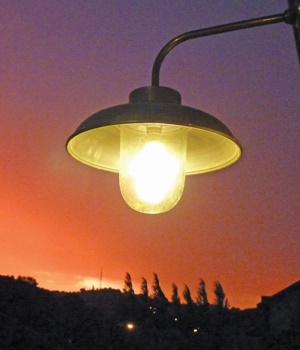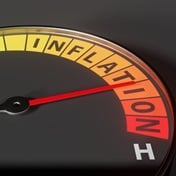
South Africa is facing a reoccurrence of power shortages and energy cost hikes, all at great expense to the economy, if Eskom doesn’t secure its long-term coal supply.
During a presentation at the recent IHS Energy SA Coal Exports Conference in Cape Town, Bevan Jones, CEO of Thebe Ventures, illustrated three future coal scenarios – two of which end with the word ‘panic’ and Eskom paying exorbitantly high prices for coal.
Coal analyst Xavier Prevost said: “We are running out of production. The big mines are producing less and less.
“The small mines that are meant to replace them are not happening, because we are getting so constrained with finances and investment,” he added.
The problem that Jones and others outlined was that while Eskom had secured its coal supply in the short term, the power utility was still facing a potential coal cliff as production from its long-term, cost-plus mines starts to fall.
“What we don’t want is to keep kicking the can down the road, and then in three to four years’ time find out no one has built the coal mines and we don’t have coal to run our coal-fired stations and we’ve got blackouts,” Jones said, speaking in his personal capacity.
Eskom senior general manager of primary energy Vusi Mboweni said the power utility needed to procure 2 billion tons of coal over the next 35 years.
While this represents a huge opportunity for coal producers, there’s little agreement on how to fund the mines that will produce this resource, while also keeping Eskom’s coal costs under control.
Eskom is facing a R39 billion recapitalisation bill for its cost-plus mines, where it has traditionally sourced most of its coal.
While Prevost advocated continuing with this model, new Eskom CEO Brian Molefe has said that he wanted to move away from cost-plus to procuring coal on the “open market”, placing the capex burden on the mines instead of on Eskom’s balance sheet.
Chamber of Mines CEO Roger Baxter said: “As we go forward, a more market-based pricing approach, which incentivises the private sector to raise the capital to invest in coal mines, is going to be necessary.
“Remember, over the next 10 to 15 years, we’re talking about R60 billion to R100 billion of capital that’s going to have to be invested in coal mining,” he added.
Jones, who founded the trading platform Global Coal, believed that the way to attract the necessary investment was to establish an open, transparent marketplace for coal, where grades are standardised and prices are disclosed.
“When you move to a market price, there’s one price for power and in effect one price for the different grades of coal … If capital needs to be spent, that comes into the market price,” he said.
“If we don’t do this, we risk a situation in a few years’ time where no new mines have been built and Eskom faces a coal shortage,” Jones added.
“Eskom has to secure coal at whatever [price] and, unfortunately, unless the government steps in some way, which wouldn’t be the best thing, Eskom would be desperate and the mine would have it over a barrel and they would be able to charge whatever price they wanted to.”
Jones also believed an open market removes opportunities for cronyism, taking some of the pressure off Eskom to continually justify the deals it signs.
“The producer and the consumers are the ones who benefit in a transparent market, the people who lose out are the agents, the tenderpreneurs, the hangers-on … In a market environment, there’s no room for the agents to add on layers and layers of fat.”
However, while Jones proposes a competitive, open-market strategy to keep costs sustainable in the long run, the government is considering an interventionist model.
Mboweni told delegates that Eskom had been experiencing inflation of 17% a year in the price of coal.
Mosa Mabuza, the deputy director-general of regulation and investment promotion in the department of mineral resources, told City Press in an interview: “Seventeen percent per annum, now that’s absurd. I will be failing in my job if I allow the market to be running on a frolic of its own like that.”
Traditionally, the export market has demanded higher grades of coal, but with countries like India buying up lower grades of coal, Eskom faces the risk of competition for some types of domestic coal. If this happens, Mabuza said the government would consider declaring the grade that Eskom uses as a strategic resource.
“The beauty is that coal is not homogenous; it has got all kinds of qualities. And there are some qualities where we’ll have to restrict,” Mabuza said.
“We have 65 billion tons of coal resources. In reserves, probably 30 billion tons to 35 billion tons. Eskom only needs 2 billion tons of that … so if it means we pull a regulatory lever that means we protect the 2 billion tons, then this 2 billion tons will have to be subject to certain terms and conditions.”




 Publications
Publications
 Partners
Partners








